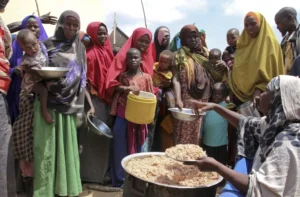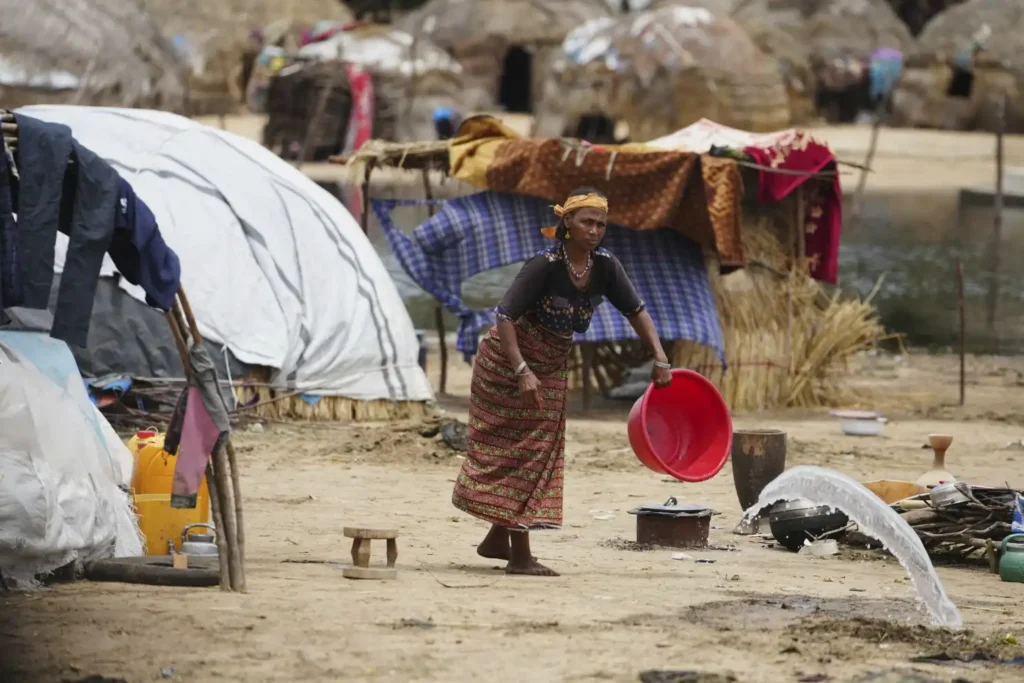In a stark warning issued in 2022, the United Nations revealed that up to 25 million Nigerians faced the threat of acute hunger due to a complex blend of worsening insecurity, climate change, and economic hardship. The figure marked a significant increase from the estimated 17 million people already grappling with food insecurity at the time of the report.
The joint assessment, conducted by the UN Food and Agriculture Organization (FAO) and the World Food Programme (WFP), painted a bleak picture of rising malnutrition, displacement, and poverty, particularly in the country’s northern regions.
Conflict and Insecurity Disrupt Food Production
One of the primary drivers of Nigeria’s deepening food crisis remains persistent conflict and insecurity, especially in the Northeast and Northwest. Violent clashes between armed groups, frequent bandit attacks, and communal tensions have uprooted farming communities and disrupted food supply chains.
Farmers across Borno, Zamfara, Kaduna, and Katsina states have either abandoned their land or faced restricted access to agricultural inputs. These disruptions, combined with threats to markets and transport routes, have severely limited both food availability and affordability for millions.

Inflation and Economic Instability Amplify the Crisis
Beyond security concerns, Nigeria’s economic environment has further fueled the hunger emergency. Soaring inflation, particularly in food prices, has pushed basic staples like rice, maize, and beans beyond the reach of many households.
The depreciation of the naira, rising fuel prices, and the lingering effects of the COVID-19 pandemic also contributed to declining purchasing power. As a result, vulnerable populations—especially in rural and low-income urban areas—found themselves increasingly unable to meet daily nutritional needs.
Climate Extremes Compound the Emergency
In addition to conflict and inflation, climate variability played a key role in exacerbating Nigeria’s food crisis. Erratic rainfall patterns, prolonged droughts in some areas, and devastating floods in others severely damaged crops and disrupted seasonal farming cycles.
The 2022 rainy season, in particular, brought unprecedented flooding across dozens of states, submerging farmlands, destroying harvests, and displacing thousands. According to relief agencies, over 1 million hectares of farmland were affected—cutting off a vital food source for local communities.
Children and Women Bear the Brunt
The crisis hit children and women the hardest. Malnutrition rates among children under five continued to rise, with many regions reporting dangerously high levels of wasting and stunting. Pregnant and breastfeeding women also faced increased nutritional vulnerability, leading to higher maternal and infant mortality risks.
The UN report highlighted the urgent need for immediate intervention to protect these groups, noting that continued inaction could result in irreversible health consequences for millions of Nigerians.
Calls for Coordinated Humanitarian Response
To prevent a full-scale catastrophe, the UN urged both the Nigerian government and the international community to scale up humanitarian aid, improve food distribution systems, and invest in long-term resilience strategies.
FAO and WFP emphasized the importance of providing targeted support for displaced farmers, boosting agricultural productivity, and addressing the root causes of conflict and environmental degradation. Aid organizations also called for more investment in early warning systems and climate-resilient farming techniques.
Government Response and Challenges Ahead
While the Nigerian government acknowledged the growing food insecurity and launched some palliative programs, critics argue that the response has remained fragmented and underfunded. Efforts like the National Home-Grown School Feeding Programme and fertilizer subsidies provided some relief but failed to reach many of the most affected regions.
Experts warn that without comprehensive policy reform, better conflict resolution mechanisms, and sustained international support, the country’s food crisis could persist—and potentially worsen—in the years to come.
Outlook: Urgency for Action Amid Growing Need
As Nigeria battles overlapping emergencies—from conflict and inflation to climate shocks and economic instability—millions of lives remain on the line. The UN’s 2022 warning underscores the urgent need for a coordinated, multi-sectoral approach that tackles both immediate hunger and long-term food security.
Without bold and sustained action, the crisis threatens to deepen further, pushing more Nigerians into poverty, malnutrition, and displacement in the years ahead.







